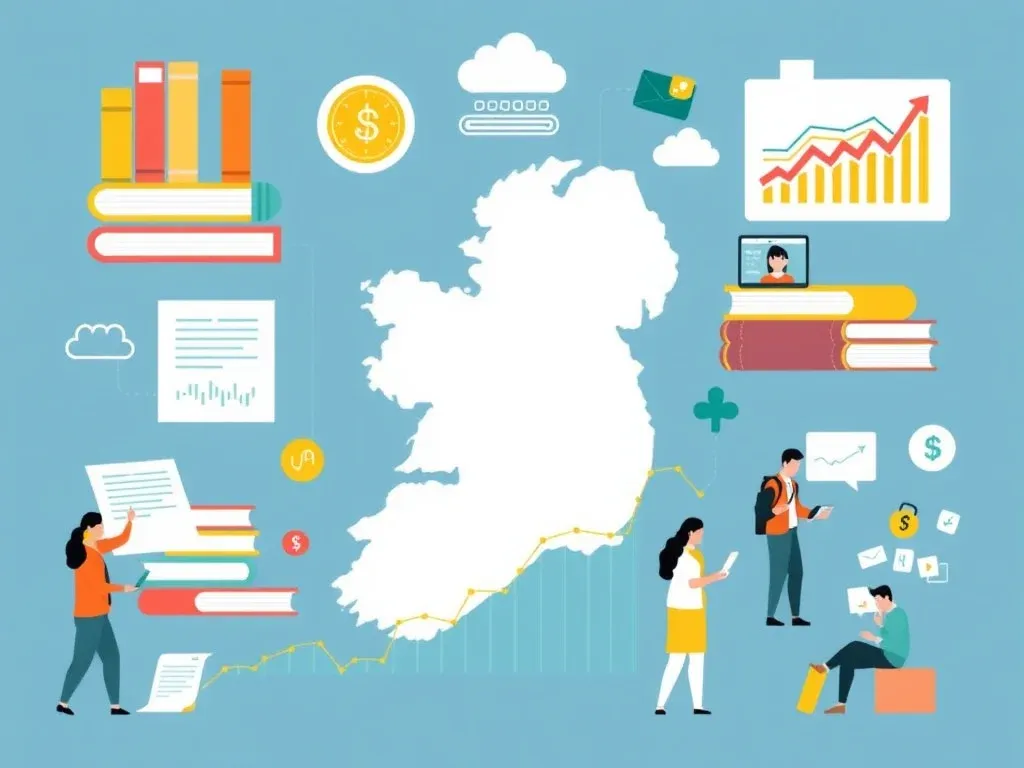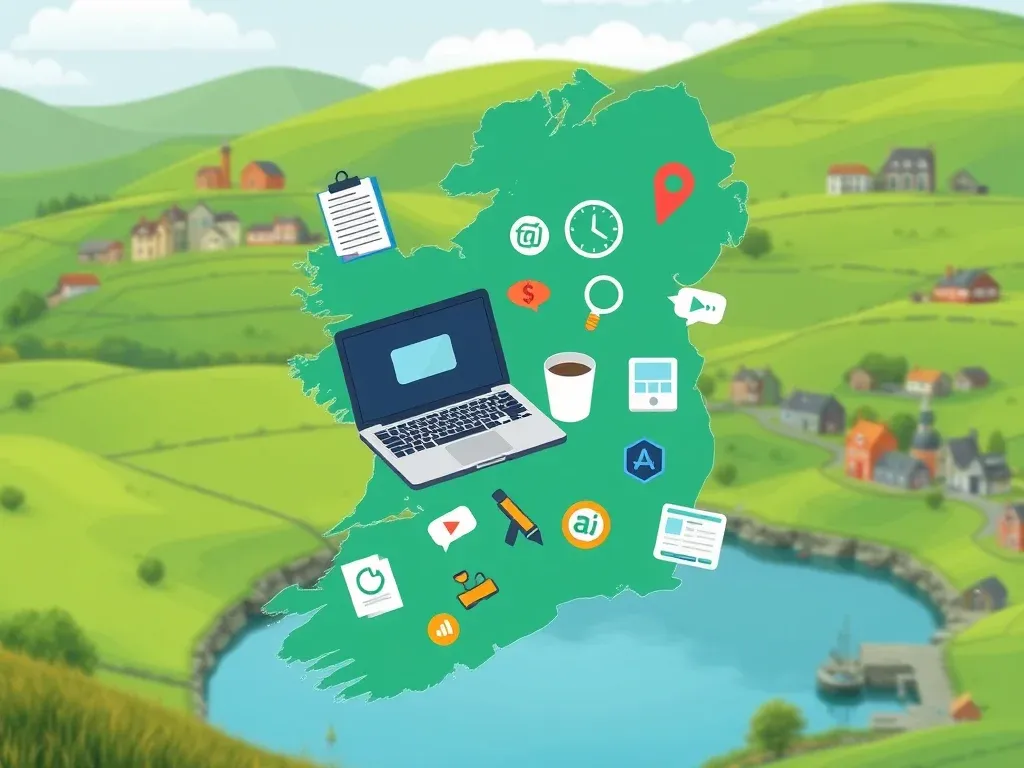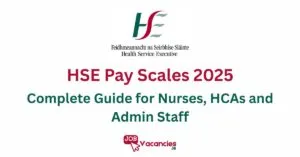Table of Contents
- Table of Contents
- Introduction
- The State of Skills in Ireland
- Skills Gaps and High-Demand Areas
- Skills Obsolescence and Emerging Needs
- Regional Variations
- Government Initiatives and Funding
- Springboard+ and Human Capital Initiative
- Skillnet Ireland
- SOLAS and Further Education
- Tax Relief for Education
- Educational Pathways for Professional Development
- Higher Education Institutions
- Professional Bodies and Industry Associations
- Private Training Providers
- Recognition of Prior Learning (RPL)
- Industry-Recognized Certifications
- Technology and IT
- Financial Services
- Pharmaceutical and Life Sciences
- Marketing and Digital Media
- Employer-Supported Development Programs
- Types of Employer Support
- Accessing Employer Support
- Corporate Universities and Academies
- Employer-Education Partnerships
- Digital Skills and Technology Training
- Core Digital Skills
- Technology Training Resources
- Specialized Technical Training
- Digital Transformation Skills
- Soft Skills Development
- Critical Soft Skills in the Irish Workplace
- Developing Soft Skills
- Soft Skills Training Resources in Ireland
- Demonstrating Soft Skills
- Resources for International Professionals
- Qualification Recognition
- Language and Cultural Support
- Targeted Upskilling Programs
- Networking for International Professionals
- Upskilling for Career Transitions
- Identifying Transferable Skills
- Strategic Upskilling Approaches
- Transition Pathways and Programs
- Building Credibility in a New Field
- Networking and Professional Associations
- Professional Associations in Ireland
- Benefits of Professional Association Membership
- Networking Events and Opportunities
- Strategic Networking for Professional Development
- Measuring ROI on Professional Development
- Defining Success Metrics
- Tracking Development Outcomes
- Maximizing ROI
- Cost-Benefit Analysis
- Future Skills and Emerging Trends
- Emerging Skills in High Demand
- Industry Transformation
- Future-Proofing Your Skill Set
- Resources for Trend Monitoring
- Conclusion
- Key Takeaways
- Related Posts
Upskilling and Professional Development in Ireland: A Comprehensive Guide
Reading time: 12 minutes
In today’s rapidly evolving job market, continuous professional development and upskilling have become essential for career growth and job security. This comprehensive guide explores the landscape of professional development in Ireland, covering government initiatives, educational pathways, industry-recognized certifications, and practical strategies for advancing your career through strategic upskilling.
Introduction
The Irish economy has undergone significant transformation in recent decades, evolving from an agriculture-based economy to a knowledge-based one dominated by technology, pharmaceuticals, financial services, and other high-skill sectors. This evolution has created both opportunities and challenges for professionals working in Ireland.
In this dynamic environment, the ability to continuously develop new skills and enhance existing ones has become a critical factor for career success. Whether you’re an Irish national, a recent immigrant, or considering a move to Ireland for work, understanding the professional development landscape can significantly impact your career trajectory.
This guide aims to provide a comprehensive overview of upskilling and professional development opportunities in Ireland, highlighting pathways that can help you stay competitive in your current role, prepare for advancement, or transition to new career opportunities in the Irish job market.
Pro Tip
Before investing in any professional development program, research its recognition within your industry in Ireland specifically. A certification that’s highly valued in one country may not carry the same weight in the Irish job market.
The State of Skills in Ireland
Ireland’s rapid economic growth has created a significant demand for skilled professionals across multiple sectors. Understanding the current skills landscape is essential for making informed decisions about your professional development journey.
Skills Gaps and High-Demand Areas
Several sectors in Ireland are experiencing notable skills shortages, creating opportunities for professionals who can develop expertise in these areas:
- Technology: Software development, cybersecurity, data analytics, artificial intelligence, and cloud computing
- Healthcare: Medical professionals, specialized nursing, healthcare management
- Financial Services: Risk management, compliance, fintech expertise
- Pharmaceuticals and Life Sciences: Research and development, quality assurance, regulatory affairs
- Sustainable Energy: Renewable energy technologies, energy efficiency, green building
Skills Obsolescence and Emerging Needs
The rapid pace of technological change means that skills obsolescence is a growing concern across industries. In Ireland, as in many developed economies, automation and digitalization are transforming job roles and creating new requirements:
- Traditional administrative roles are increasingly being automated
- Digital literacy has become essential across virtually all sectors
- Hybrid skills combining technical knowledge with business acumen are increasingly valued
- Adaptability and continuous learning mindsets are becoming core employability traits
Regional Variations
While Dublin remains the center of many high-skill industries, particularly technology and financial services, there are growing opportunities in regional hubs:
- Cork and Galway: Emerging technology and pharmaceutical clusters
- Limerick: Growing technology and engineering sectors
- Waterford: Developing financial services and technology presence
Understanding these regional variations can help you target your professional development to align with opportunities in your preferred location within Ireland.
Pro Tip
The Skills and Labour Market Research Unit (SLMRU) at SOLAS publishes regular reports on skills needs in the Irish economy. Reviewing these reports can provide valuable insights into which skills are most likely to enhance your employability in the short and medium term.
Government Initiatives and Funding
The Irish government has implemented various initiatives to support upskilling and professional development, recognizing their importance for economic growth and competitiveness.
Springboard+ and Human Capital Initiative
Springboard+ is one of Ireland’s most significant upskilling initiatives, offering free and subsidized courses in areas of identified skills needs:
- Courses are available at certificate, degree, and post-graduate level
- Many programs are designed for part-time study, allowing participants to continue working
- Eligibility has expanded over the years to include employed people seeking to upskill
- The Human Capital Initiative has further expanded these offerings with a focus on future skills needs
Skillnet Ireland
Skillnet Ireland provides a range of upskilling opportunities through industry-led learning networks:
- Programs are developed in direct response to industry needs
- Training is subsidized, reducing costs for both employers and employees
- Networks cover a wide range of sectors, from technology to food and beverage
- Both technical and transversal skills development are supported
SOLAS and Further Education
SOLAS, Ireland’s Further Education and Training Authority, coordinates a range of programs through Education and Training Boards (ETBs):
- Apprenticeships in traditional and new areas (including technology, finance, and insurance)
- Vocational training programs
- eCollege online learning platform offering free courses in digital skills
- Skills to Advance initiative for employed people
Tax Relief for Education
Ireland offers tax relief on tuition fees for approved courses, which can significantly reduce the cost of self-funded professional development:
- Available for undergraduate and postgraduate courses
- Applies to part-time and full-time study
- Covers approved courses in Ireland and other EU member states
- Subject to certain limits and conditions
Pro Tip
Government-funded programs often have specific application periods and eligibility criteria. Create calendar reminders for application deadlines of programs that interest you, and prepare your application materials well in advance to maximize your chances of securing a place.
Educational Pathways for Professional Development
Ireland offers a diverse range of educational pathways for professional development, from traditional academic programs to flexible, modular learning options.
Higher Education Institutions
Ireland’s universities and institutes of technology offer various programs designed for working professionals:
- Postgraduate Diplomas and Masters: Specialized programs that can be completed on a part-time basis
- Executive Education: Short, intensive programs focused on specific skills or knowledge areas
- Modular Learning: Accumulation of credits through individual modules that can eventually lead to a qualification
- Online and Blended Learning: Flexible delivery models that accommodate work commitments
Professional Bodies and Industry Associations
Many professional bodies in Ireland offer continuing professional development (CPD) programs:
- Structured pathways for advancement within specific professions
- Recognition of prior learning and experience
- Industry-relevant content developed with employer input
- Networking opportunities with industry peers
Private Training Providers
The private sector offers numerous professional development options:
- Specialized training in niche areas
- Flexible scheduling options, including evening and weekend courses
- Corporate training programs tailored to specific organizational needs
- Boot camps and intensive training programs for rapid skills acquisition
Recognition of Prior Learning (RPL)
Many Irish educational institutions offer RPL processes that can:
- Grant credits for previous formal learning
- Recognize work experience and informal learning
- Reduce the time and cost of obtaining new qualifications
- Create personalized learning pathways based on existing knowledge and skills
Pro Tip
When considering educational pathways, look beyond the content of the program to its delivery method and assessment approach. Programs that incorporate project-based learning and real-world applications often provide more transferable skills than those focused primarily on theoretical knowledge.
Industry-Recognized Certifications
Industry certifications can provide targeted professional development and signal expertise to employers. Here are some of the most valuable certifications across key sectors in Ireland.
Technology and IT
The technology sector in Ireland values a range of certifications:
- Cloud Computing: AWS Certified Solutions Architect, Microsoft Azure Certifications, Google Cloud Professional
- Cybersecurity: Certified Information Systems Security Professional (CISSP), Certified Ethical Hacker (CEH)
- Project Management: PRINCE2, PMP, Agile and Scrum certifications
- Data Analytics: Microsoft Power BI, Tableau, Google Data Analytics
- Software Development: Language-specific certifications (Java, Python), cloud-native development certifications
Financial Services
In Ireland’s growing financial services sector, these certifications are particularly valued:
- Accounting: ACCA, CPA, Chartered Accountant (ACA)
- Financial Analysis: Chartered Financial Analyst (CFA)
- Risk and Compliance: Financial Risk Manager (FRM), Certified Anti-Money Laundering Specialist (CAMS)
- Financial Planning: Qualified Financial Advisor (QFA), Certified Financial Planner (CFP)
- Fintech: Certified Fintech Professional (CFP), Blockchain certifications
Pharmaceutical and Life Sciences
Ireland’s pharmaceutical sector recognizes these key certifications:
- Quality Assurance: Certified Quality Auditor (CQA), Six Sigma certifications
- Regulatory Affairs: Regulatory Affairs Certification (RAC)
- Manufacturing: Certified Pharmaceutical GMP Professional
- Clinical Research: Association of Clinical Research Professionals (ACRP) certification
- Project Management: PMP with life sciences focus
Marketing and Digital Media
As digital marketing grows in importance, these certifications are increasingly valued:
- Digital Marketing: Google Digital Marketing Certification, Digital Marketing Institute certifications
- Social Media: Facebook Blueprint, Hootsuite certification
- Content Marketing: Content Marketing Institute certification
- SEO and Analytics: Google Analytics certification, SEMrush certification
- UX Design: Certified User Experience Professional
Pro Tip
Before investing in a certification, research its recognition among employers in Ireland specifically. Connect with professionals in your target role on LinkedIn to ask about which certifications they’ve found most valuable in the Irish context.
Employer-Supported Development Programs
Many organizations in Ireland offer structured professional development opportunities for their employees. Understanding how to access and leverage these programs can significantly enhance your career progression.
Types of Employer Support
Employer support for professional development can take various forms:
- Financial Support: Tuition reimbursement, payment for certifications and courses
- Time Allowances: Study leave, flexible working arrangements to accommodate education
- Internal Training: In-house development programs, mentoring, and coaching
- Career Pathways: Structured progression routes with associated training
- Learning Resources: Access to learning platforms, professional subscriptions, and resources
Accessing Employer Support
To maximize the professional development support available from your employer:
- Review your organization’s HR policies regarding professional development
- Discuss development opportunities during performance reviews
- Create a personal development plan aligned with organizational goals
- Research how colleagues have accessed support previously
- Present a business case for specific development opportunities
Corporate Universities and Academies
Many larger employers in Ireland have established their own learning programs:
- Technology companies often have extensive technical training programs
- Financial institutions frequently offer regulatory and compliance training
- Pharmaceutical companies typically provide GMP and quality systems training
- Professional services firms usually have structured development pathways
Employer-Education Partnerships
Many Irish employers have partnerships with educational institutions:
- Co-designed programs that meet specific industry needs
- Preferential rates for employees
- Work-based learning components integrated into academic programs
- Recognition of workplace learning towards academic qualifications
Pro Tip
When interviewing for new positions in Ireland, ask specific questions about professional development support. Companies with robust development programs often see this interest positively, and it can give you valuable insights into the organization’s culture around continuous learning.
Digital Skills and Technology Training
Digital skills have become essential across virtually all sectors in Ireland. Whether you’re working in a technology role or not, developing digital literacy and specific technical skills can significantly enhance your employability.
Core Digital Skills
Regardless of your industry, these foundational digital skills are increasingly expected in the Irish workplace:
- Data Literacy: Understanding, interpreting, and communicating with data
- Digital Collaboration: Effectively using tools for remote and hybrid work
- Digital Security Awareness: Recognizing and mitigating cybersecurity risks
- Digital Content Creation: Creating professional digital content for various platforms
- Digital Problem-Solving: Using digital tools to address workplace challenges
Technology Training Resources
Ireland offers numerous resources for developing technology skills:
- Government Initiatives: Digital Skills for Citizens, SOLAS eCollege
- Industry Programs: Microsoft Digital Skills, Google Digital Garage
- Coding Bootcamps: Code Institute, Software Design Academy
- Technology Meetups: Dublin Tech Talks, Cork|Sec, Galway DevOps
- Online Learning Platforms: Pluralsight, LinkedIn Learning, Coursera
Specialized Technical Training
For those in or transitioning to technical roles, specialized training is available in:
- Software Development: Programming languages, frameworks, and methodologies
- Data Science and Analytics: Statistical analysis, machine learning, data visualization
- Cybersecurity: Threat detection, security architecture, penetration testing
- Cloud Computing: AWS, Azure, Google Cloud Platform
- DevOps: Continuous integration/continuous deployment, infrastructure as code
Digital Transformation Skills
As organizations in Ireland undergo digital transformation, these skills are increasingly valued:
- Change Management: Supporting teams through technological change
- Digital Strategy: Aligning technology initiatives with business goals
- Process Automation: Identifying and implementing automation opportunities
- Digital Customer Experience: Designing and optimizing digital interactions
- Digital Ethics: Addressing ethical considerations in technology implementation
Pro Tip
When developing digital skills, focus on building a portfolio of practical projects rather than just completing courses. Irish employers increasingly value demonstrated application of skills over certifications alone, particularly in technology-related fields.
Soft Skills Development
While technical skills are often emphasized in professional development, soft skills (or transversal skills) are equally crucial for career advancement in Ireland. These skills enhance your ability to work effectively with others and navigate complex workplace dynamics.
Critical Soft Skills in the Irish Workplace
Research on Irish employers consistently highlights the importance of these soft skills:
- Communication: Clear expression, active listening, and cross-cultural communication
- Collaboration: Teamwork, conflict resolution, and relationship building
- Critical Thinking: Problem-solving, analytical reasoning, and decision-making
- Adaptability: Resilience, openness to change, and continuous learning
- Leadership: Influencing, delegating, and motivating others
Developing Soft Skills
Unlike technical skills, soft skills development often requires different approaches:
- Experiential Learning: Taking on projects that stretch your capabilities
- Feedback and Reflection: Seeking input and reflecting on interactions
- Mentoring and Coaching: Working with experienced professionals
- Professional Networks: Learning from peers in different contexts
- Structured Programs: Workshops, courses, and training focused on specific soft skills
Soft Skills Training Resources in Ireland
Various resources are available for developing soft skills:
- Professional Bodies: Many offer soft skills workshops and courses
- Higher Education: Executive education programs often focus on leadership and communication
- Toastmasters: Chapters throughout Ireland for public speaking development
- Chamber of Commerce: Business networking and professional development events
- Skillnet Ireland: Many networks offer soft skills training
Demonstrating Soft Skills
Effectively showcasing your soft skills is crucial for career advancement:
- Document specific examples of soft skills application in your work
- Seek opportunities to lead projects or initiatives that highlight these skills
- Request recommendations that specifically mention your soft skills strengths
- Develop stories that illustrate your soft skills for interviews and networking
- Volunteer for roles that develop and demonstrate these capabilities
Pro Tip
In the Irish workplace, emotional intelligence is particularly valued. Developing your ability to recognize and respond appropriately to your own emotions and those of others can significantly enhance your effectiveness, especially in management and leadership roles.
Resources for International Professionals
International professionals in Ireland face unique challenges and opportunities in their professional development journey. Understanding the available resources can help you navigate this landscape effectively.
Qualification Recognition
Having your international qualifications recognized is often the first step:
- NARIC Ireland: Provides advice on the recognition of foreign qualifications
- Quality and Qualifications Ireland (QQI): Offers information on how foreign qualifications compare to Irish qualifications
- Professional Bodies: Many have specific processes for recognizing international credentials
- Regulatory Authorities: Some professions require registration with regulatory bodies
Language and Cultural Support
Enhancing language skills and cultural understanding can be crucial:
- English Language Support: ETBs offer English language courses for professionals
- Cultural Integration Programs: Organizations like New Communities Partnership offer support
- Intercultural Communication Training: Available through various providers
- Professional Networks: Groups like Network Ireland provide networking opportunities
Targeted Upskilling Programs
Several initiatives specifically support international professionals:
- Education and Training Boards: Offer programs specifically for migrants
- Migrant Support Organizations: Provide career guidance and skills development
- Enterprise Ireland: Supports immigrant entrepreneurs
- Solas eCollege: Offers free online courses accessible to all residents
Networking for International Professionals
Building professional networks is particularly important:
- Cultural Associations: Many countries have associations in Ireland
- International Chambers of Commerce: Provide business networking opportunities
- LinkedIn Groups: Many focus on specific nationalities or international professionals
- Meetup Groups: Both professional and social groups can expand your network
Pro Tip
Your international experience and perspective can be valuable assets in the Irish workplace. When pursuing professional development, consider how you can highlight these unique strengths rather than focusing solely on adapting to Irish workplace norms.
Upskilling for Career Transitions
Whether you’re looking to advance in your current field or pivot to a new industry, strategic upskilling can facilitate successful career transitions in the Irish job market.
Identifying Transferable Skills
Before investing in new skills, assess your existing transferable skills:
- Conduct a comprehensive skills audit
- Research how your existing skills apply to target roles
- Identify skills gaps that need to be addressed
- Seek feedback from professionals in your target field
- Use tools like the Skills Profiler from Careers Portal
Strategic Upskilling Approaches
Different career transitions may require different upskilling strategies:
- Vertical Transitions: Focus on specialized knowledge and leadership skills
- Horizontal Transitions: Emphasize industry-specific knowledge and practices
- Career Pivots: Prioritize foundational skills in the new field
- Entrepreneurial Transitions: Develop business management and sector-specific expertise
Transition Pathways and Programs
Several pathways can support career transitions in Ireland:
- Conversion Courses: Postgraduate programs designed for career changers
- Springboard+: Offers courses specifically for those changing careers
- Apprenticeships: Now available in many fields and open to adult learners
- Returnships: Programs for professionals returning after career breaks
- Internships and Work Placements: Opportunities to gain experience in new fields
Building Credibility in a New Field
Beyond formal qualifications, consider these strategies:
- Develop a portfolio of relevant projects
- Contribute to open-source initiatives or volunteer work
- Participate in industry events and discussions
- Publish content demonstrating your knowledge
- Seek mentorship from established professionals
Pro Tip
When transitioning careers in Ireland, consider the “stepping stone” approach. Rather than making a dramatic shift all at once, look for intermediate roles that bridge your current expertise with your target field. This approach can make your transition more manageable and financially sustainable.
Networking and Professional Associations
Professional networks play a crucial role in career development in Ireland, offering opportunities for learning, mentorship, and career advancement. Strategic networking can significantly enhance your professional development journey.
Professional Associations in Ireland
Ireland has numerous professional associations across different sectors:
- Technology: Irish Computer Society, it@cork, Technology Ireland
- Finance: Chartered Accountants Ireland, Irish Funds Industry Association
- Healthcare: Irish Medical Organisation, Irish Nurses and Midwives Organisation
- Legal: Law Society of Ireland, Bar Council of Ireland
- Marketing: Marketing Institute of Ireland, Public Relations Institute of Ireland
Benefits of Professional Association Membership
Joining professional associations can provide numerous advantages:
- Access to industry-specific continuing professional development
- Networking opportunities with peers and industry leaders
- Mentoring programs and career guidance
- Industry publications and research
- Conferences, seminars, and workshops
Networking Events and Opportunities
Beyond formal associations, Ireland offers various networking opportunities:
- Industry Conferences: Major events like Dublin Tech Summit, FutureScope
- Meetup Groups: Professional interest groups across various sectors
- Chamber of Commerce Events: Business networking across Ireland
- Alumni Networks: University and college alumni associations
- Coworking Spaces: Many host regular networking events
Strategic Networking for Professional Development
To maximize the value of networking for your professional development:
- Identify specific learning and development goals for your networking
- Prepare thoughtful questions for industry experts
- Follow up on connections with specific requests for advice or information
- Offer value to your network through knowledge sharing
- Maintain regular contact with key connections
Pro Tip
In Ireland’s relatively small professional community, the quality of your networking often matters more than quantity. Focus on building genuine relationships with a smaller number of connections rather than collecting a large number of superficial contacts.
Measuring ROI on Professional Development
Investing time and resources in professional development should yield tangible returns. Understanding how to measure and maximize the return on investment (ROI) of your upskilling efforts is crucial for strategic career management.
Defining Success Metrics
Before undertaking professional development, define clear success metrics:
- Career Advancement: Promotions, expanded responsibilities, leadership opportunities
- Financial Returns: Salary increases, bonuses, access to higher-paying roles
- Performance Improvement: Efficiency gains, quality improvements, innovation
- Job Satisfaction: Engagement, confidence, reduced stress
- Employability: Job security, market demand for your skills
Tracking Development Outcomes
Systematically monitor the outcomes of your professional development:
- Document pre- and post-development performance
- Collect feedback from managers, colleagues, and clients
- Track application of new skills in work situations
- Monitor career progression against industry benchmarks
- Assess changes in your professional network and opportunities
Maximizing ROI
To ensure the highest return on your professional development investment:
- Alignment: Choose development opportunities that align with both your goals and market demand
- Application: Create immediate opportunities to apply new skills
- Visibility: Ensure key stakeholders are aware of your development
- Integration: Connect new skills with existing strengths
- Reinforcement: Regularly practice and refresh skills to prevent decay
Cost-Benefit Analysis
When evaluating professional development options, consider:
- Direct costs (tuition, materials, certification fees)
- Indirect costs (time investment, opportunity costs)
- Potential short-term benefits (immediate skill application)
- Likely long-term benefits (career progression)
- Alternative development options and their relative value
Pro Tip
The highest ROI often comes from development that addresses the intersection of three factors: your strengths and interests, organizational needs, and market demand. Before investing in professional development, research all three aspects to identify the sweet spot for your upskilling efforts.
Future Skills and Emerging Trends
The Irish job market continues to evolve rapidly. Understanding emerging skills trends can help you future-proof your career and make strategic professional development decisions.
Emerging Skills in High Demand
Research from Irish employment agencies and industry bodies highlights these emerging skill areas:
- Artificial Intelligence and Machine Learning: Development, implementation, and ethical governance
- Sustainability and Green Skills: Carbon management, sustainable design, ESG reporting
- Digital Health: Telehealth, health informatics, medical technology
- Cybersecurity: Cloud security, security architecture, threat intelligence
- Data Analytics and Visualization: Advanced analytics, predictive modeling, data storytelling
Industry Transformation
Several Irish industries are undergoing significant transformation, creating new skill requirements:
- Financial Services: Moving toward fintech, regtech, and sustainable finance
- Manufacturing: Adopting Industry 4.0, automation, and smart factory approaches
- Healthcare: Integrating digital health, personalized medicine, and remote care
- Agriculture: Implementing agritech, precision farming, and sustainable practices
- Energy: Transitioning to renewable sources, smart grids, and energy efficiency
Future-Proofing Your Skill Set
To prepare for future skill demands in the Irish job market:
- Develop a continuous learning mindset and habits
- Build a foundation of adaptable skills that transfer across roles
- Stay informed about technological developments in your industry
- Cultivate cross-disciplinary knowledge and perspectives
- Engage with professional networks focused on innovation
Resources for Trend Monitoring
To stay informed about emerging skills trends in Ireland:
- Expert Group on Future Skills Needs: Publishes regular reports on skills forecasts
- IDA Ireland: Provides insights on skills needed by multinational companies
- Industry-Specific Reports: From bodies like Technology Ireland, IBEC, etc.
- LinkedIn Skills Reports: Offers data on emerging skills in the Irish market
- University Research Centers: Often publish forward-looking industry studies
Pro Tip
When developing future-oriented skills, look beyond your current industry. Many of the most valuable future skills will be those that can bridge different domains, such as combining healthcare knowledge with data analytics or financial expertise with sustainability principles.
Conclusion
Professional development and upskilling are no longer optional extras but essential components of career management in Ireland’s dynamic job market. By taking a strategic approach to your professional development, you can enhance your current performance, prepare for future opportunities, and build resilience against market changes.
Key Takeaways
- Understand the current skills landscape in Ireland and identify high-demand areas relevant to your career path
- Take advantage of government initiatives and funding opportunities to support your professional development
- Consider a mix of formal education, industry certifications, and experiential learning
- Develop both technical and soft skills for a well-rounded professional profile
- Leverage employer support and professional networks to enhance your development journey
- Measure the ROI of your professional development to ensure strategic investment of time and resources
- Stay informed about emerging skills trends to future-proof your career
Remember that professional development is a continuous journey rather than a destination. By cultivating a growth mindset and making learning a regular part of your professional life, you’ll be well-positioned to thrive in Ireland’s evolving job market.
Whether you’re looking to advance in your current role, transition to a new field, or enhance your employability, the resources and pathways outlined in this guide provide a roadmap for effective professional development in the Irish context.








